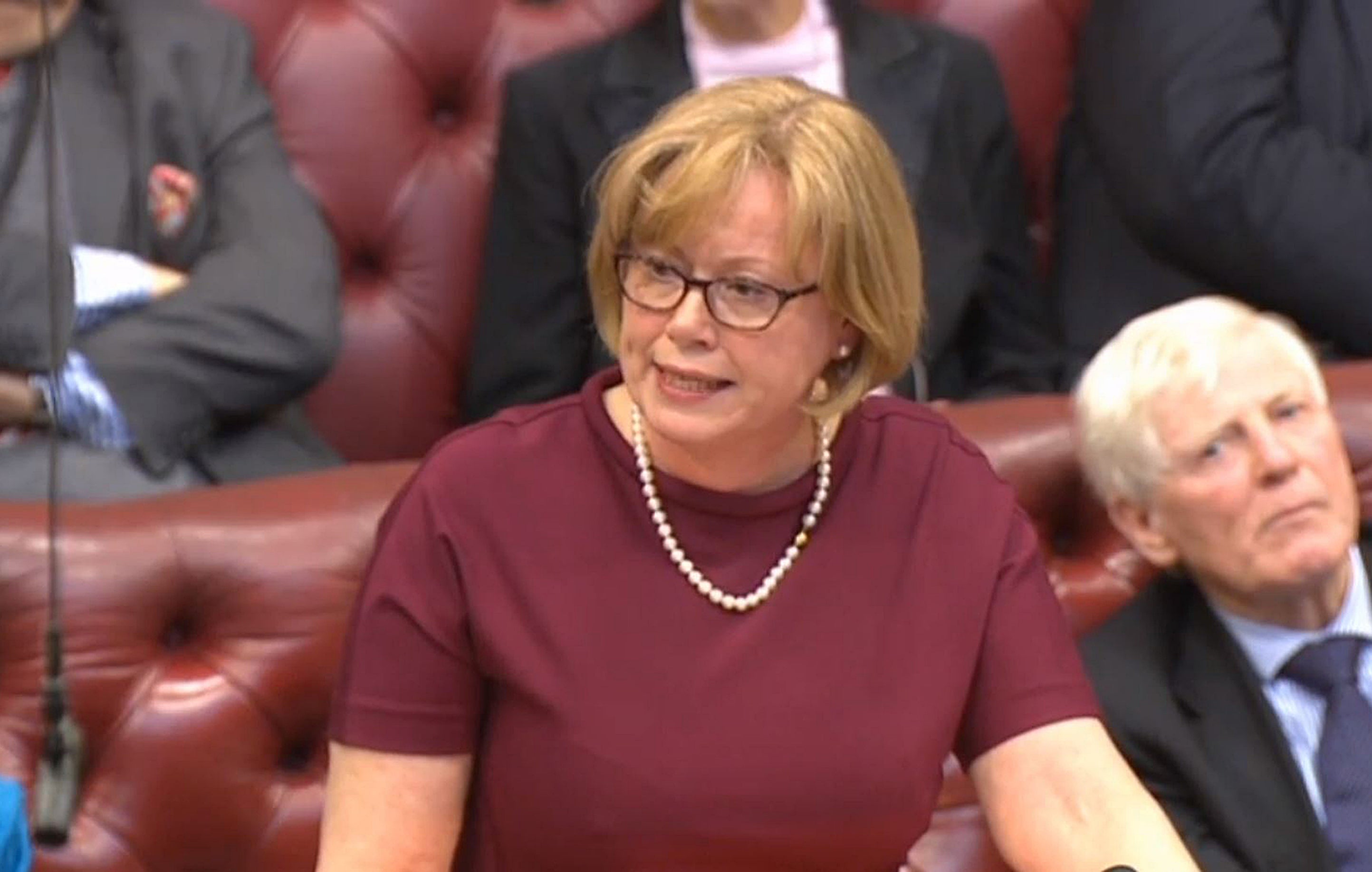Northern Ireland Protocol Bill expected in Lords before October – Baroness Smith
The Labour peer said anger is building against the Bill, which aims to override parts of the protocol to address unionist concerns.

The Northern Ireland Protocol Bill is expected to reach the House of Lords before October, Baroness Smith has said.
Labour’s House of Lords leader said anger is building at the Bill, and accused the Government of “taking its eye off the ball” over Northern Ireland.
Some have contended that the Bill breaks international law by seeking to override sections of the protocol.
Irish Foreign Affairs Minister Simon Coveney and his German counterpart, Annalena Baerbock, have warned there is “no legal or political justification for unilateral action”.
Boris Johnson negotiated this deal. He negotiated the protocol. He told us it would protect the Good Friday Agreement, and now he's saying we've got to get rid of it to protect the Good Friday Agreement
Writing in a joint article for the Observer newspaper, they argued that the protocol explicitly recognises Northern Ireland’s constitutional position within the UK, and is bringing real economic benefit to the region and protecting the EU’s single market.
“There is no legal or political justification for unilaterally breaking an international agreement entered into only two years ago,” they said.
“The tabling of legislation will not fix the challenges around the protocol.
“Instead it will create a new set of uncertainties and make it more challenging to find durable solutions.”
They urged the UK Government to “step back from their unilateral approach and show the same pragmatism and readiness to compromise the EU has shown”.
“By working together – in partnership and with mutual respect – common ground can be found and challenges, no matter how difficult, overcome,” they added.
Baroness Smith said locally the “lack of decent answers” from the Government has “really set people off”.
“I’ve already had a number of phone calls last week and people queuing at my door to talk about what can we do about this Bill,” she told BBC Northern Ireland’s Sunday Politics programme.
“The debates in the House of Commons particularly, and the lack of decent Government answers, has really set people off.”
MPs voted last week to give the Bill a second reading, clearing the way for it to undergo detailed scrutiny in the coming weeks.
Baroness Smith said she expects to see the Bill come before the Lords before October, as well as the Government’s Bill to address the legacy of Northern Ireland’s troubled past before the end of July.
The legacy Bill, which proposes an effective amnesty for Troubles crimes for those who co-operate with an information body, has been opposed by all the parties in Northern Ireland as well as victims’ groups.
“Our role is scrutiny and revision so we will look at them in detail. Where we think there are problems – and of course there are considerable problems with this Bill – we will send those issues back to the House of Commons for them to look at again,” she said.
“Now the Government, if it wishes, can just use its majority and keep whacking them back to us and say ‘We don’t care what you think’, but I think the issues of international law and the powers going to ministers are so ingrained in how the House of Lords wants to approach issues that the Government is going to have to negotiate further on this one.”
Baroness Smith described a “lack of trust” in how the Government is handling Northern Ireland issues across Parliament from all the parties.
Powersharing at Stormont remains on ice after the DUP refused to re-establish a devolved Executive following May’s Assembly election in protest at the protocol creating economic barriers on trade between Great Britain and Northern Ireland.
DUP leader Sir Jeffrey Donaldson has said his party will not nominate ministers until the UK Government takes action over the protocol.
The Labour peer said there are no guarantees that this Bill will see that happen.
“It’s a very precarious position,” she said.
“I do think the Government has had its eye off the ball on Northern Ireland, whether it’s this or the legacy legislation… there doesn’t seem to have been the care and concern from the very beginning of Brexit.
“Boris Johnson negotiated this deal. He negotiated the protocol. He told us it would protect the Good Friday Agreement, and now he’s saying we’ve got to get rid of it to protect the Good Friday Agreement.
“So either he was careless at the beginning, didn’t know what he was signing, or he just didn’t care about it.
“So I think it’s very difficult, but I don’t think this Bill on its own is going to resolve all the problems or help us get the Northern Ireland Assembly up and running again.
“There are difficulties, but the way to resolve them isn’t unilateral legislation. It’s actually ongoing negotiations, and that means on both sides – they have got to be more flexible.”